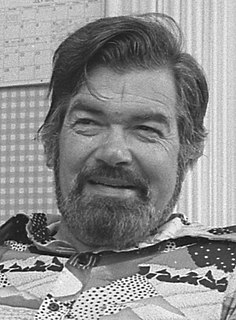A Quote by Richard M. Weaver
The disappearance of the heroic ideal is always accompanied by the growth of commercialism. There is a cause-and-effect relationship here, for the man of commerce is by the nature of things a relativist; his mind is constantly on the fluctuating values of the marketplace, and there is no surer way to fail than to dogmatize and moralize about things.
Related Quotes
Only because of the striving nature of men has mankind achieved what it has so far. Men are made that way; they are designed to reach out for things which they cannot see with their eyes but can only imagine. A man naturally seeks after his dream, his ideal, while women are more concerned with the here and now rather than the future, intangible realm.
I suspect it was...the old story of the implacable necessity of a man having honour within his own natural spirit. A man cannot live and temper his mettle without such honour. There is deep in him a sense of the heroic quest; and our modern way of life, with its emphasis on security, its distrust of the unknown and its elevation of abstract collective values has repressed the heroic impulse to a degree that may produce the most dangerous consequences.
Wonder [admiratio astonishment, marvel] is a kind of desire for knowledge. The situation arises when one sees an effect and does not know its cause, or when the cause of the particular effect is one that exceeds his power of understanding. Hence, wonder is a cause of pleasure insofar as there is annexed the hope of attaining understanding of that which one wants to know. ... For desire is especially aroused by the awareness of ignorance, and consequently a man takes the greatest pleasure in those things which he discovers for himself or learns from the ground up.
The only thing that one really knows about human nature is that it changes. Change is the one quality we can predicate of it. The systems that fail are those that rely on the permanency of human nature, and not on its growth and development. The error of Louis XIV was that he thought human nature would always be the same. The result of his error was the French Revolution. It was an admirable result.
The most evident difference between man and animals is this: the beast, in as much as it is largely motivated by the senses and with little perception of the past or future, lives only for the present. But man, because he is endowed with reason by which he is able to perceive relationships, sees the causes of things, understands the reciprocal nature of cause and effect, makes analogies, easily surveys the whole course of his life, and makes the necessary preparations for its conduct.
From what has been said we can clearly understand the nature of Love and Hate. Love is nothing else but pleasure accompanied by the idea of an external cause: Hate is nothing else but pain accompanied by the idea of an external cause. We further see, that he who loves necessarily endeavors to have, and to keep present to him, the object of his love; while he who hates endeavors to remove and destroy the object of his hatred.
Every man has at times in his mind the Ideal of what he should be, but is not. This ideal may be high and complete, or it may be quite low and insufficient; yet in all men, that really seek to improve, it is better than the actual character... Man never falls so low, that he can see nothing higher than himself.








































